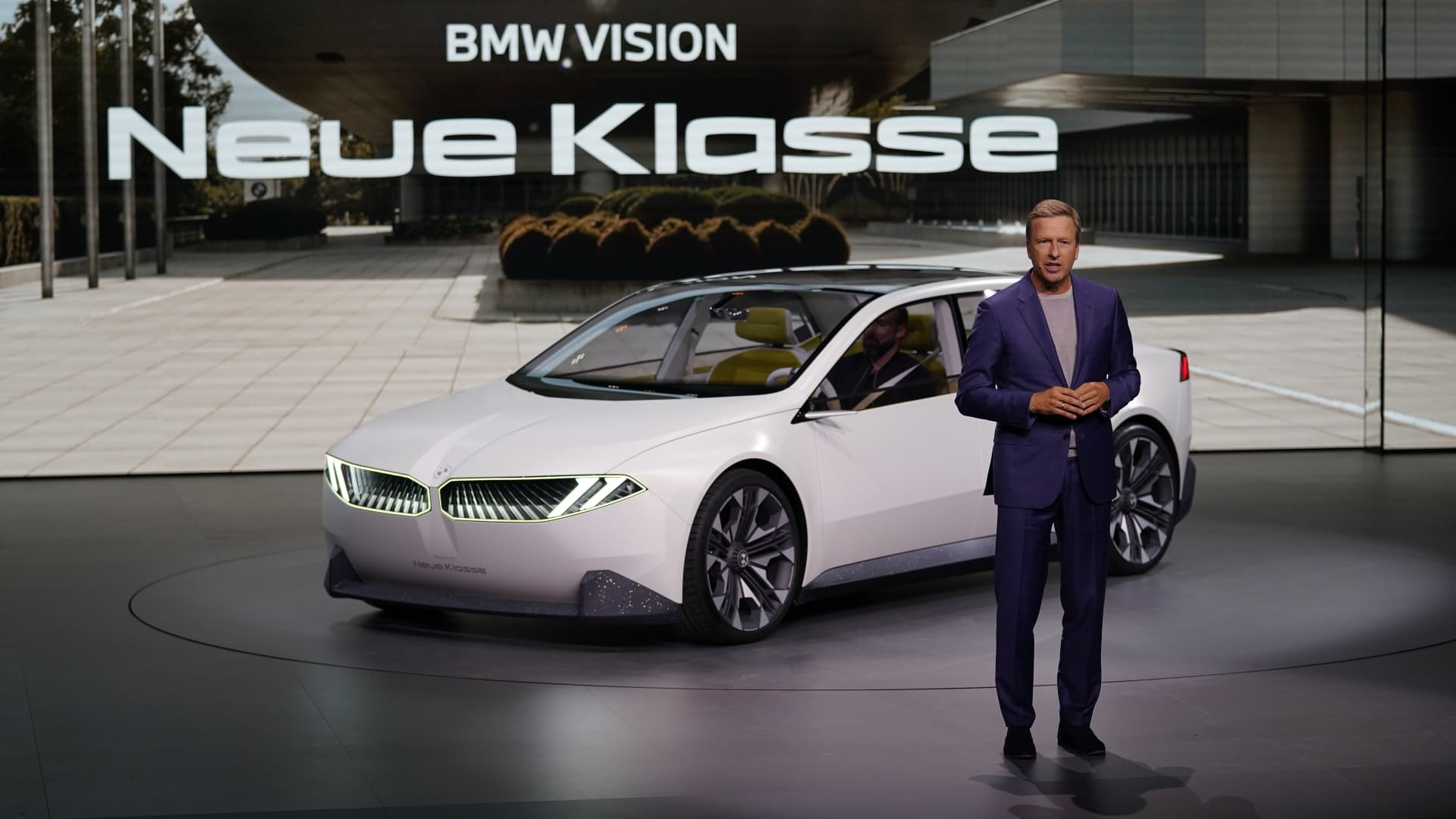BMW CEO Oliver Zipse speaks during the presentation of the new BMW “New Class” during an event ahead of the IAA motor show in Munich.
Picture Alliance | Picture Alliance | Getty Images
Europe’s biggest car manufacturers are wary of the competitive threat posed by new Chinese companies, as the automobile industry moves towards electrification, multiple CEOs told CNBC in recent days.
Europe’s dominant position in the automotive sector was established over many decades through its capacity to build superior combustion engines. But this competitive advantage is becoming less pivotal, as demand for battery electric vehicles grows, and Chinese firms benefiting from state subsidies can produce battery cells at a lower cost.
Christophe Périllat, CEO of French car parts manufacturer Valeo, told CNBC on Monday that China is now the company’s main market, as the former “barrier to entry” of the combustion engine has been removed. This has enabled a new wave of Chinese companies to make their mark not only domestically, but also as potential exporters
The development poses a substantial threat to Europe’s automotive giants, such as Volkswagen, Renault and BMW, as they look to grow their fleets of electric and hybrid offerings without the same backing from state subsidies.
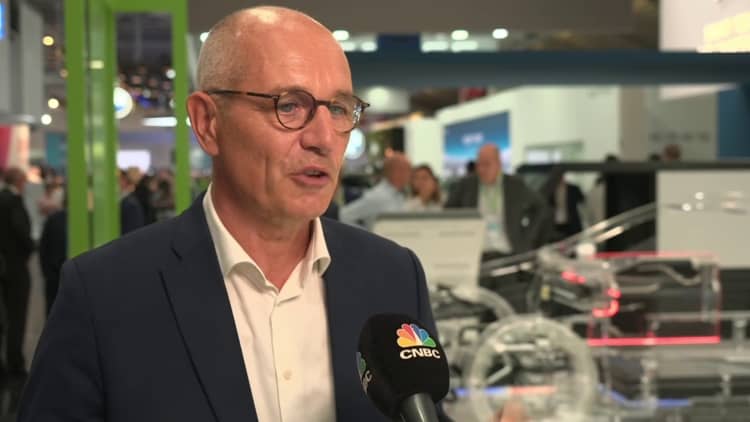
Renault CEO Luca De Meo told CNBC at the IAA Mobility conference in Munich on Monday that the French carmaker continues to grow its investments in new technologies, battery plants and gigafactories and hopes the company’s new pure EV unit, Ampere, will enable it to compete in a “different sport” from its traditional markets.
“One of the commitments we are taking with Ampere is, actually, to slash the costs by 40% generation on generation, and this is about a lot of investment in technology, in development, in the manufacturing techniques,” De Meo told CNBC’s Annette Weisbach.
“We think we have the argument and the confidence to do it, it will take some time because Chinese OEMs, they started a generation before the Europeans because market conditions were different in China, so that’s the fight, and we are ready to engage.”
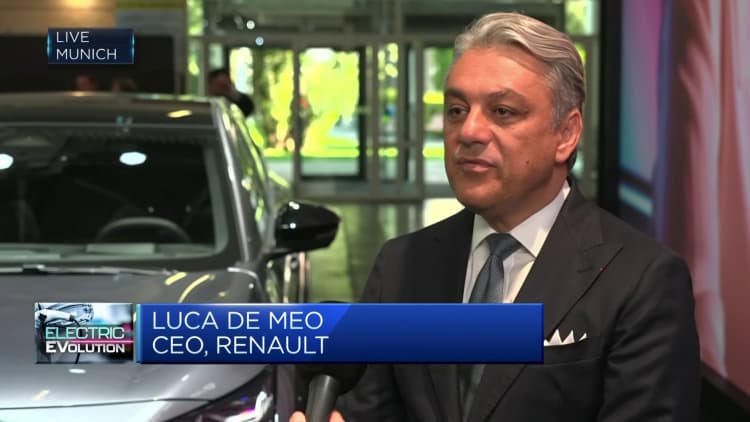
The challenge from the east was also acknowledged by Volkswagen CEO Oliver Blume, who said the company had established a new China strategy this year to focus on developing technologies to cater specifically to Chinese demand.
The German behemoth has already created automotive software company CARIAD, as well as partnering with Chinese EV startup Xpeng, joint venture partner SAIC and autonomous driving company Horizon Robotics.
“Competition is also a positive aspect to improve ourselves, and so China is one of our important markets, and we are continuing to invest heavily there,” Blume said.
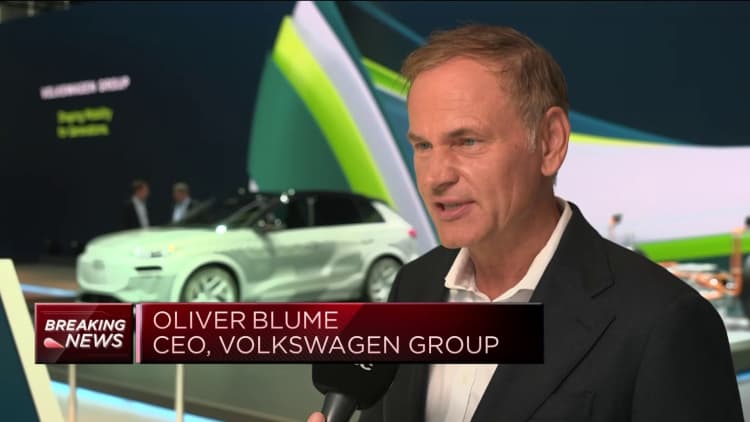
He added that Volkswagen has established “huge cost initiatives” and sees big opportunities to scale up its EV production while reducing battery production costs by 50%.
“On the one hand, we have huge experience in terms of driving abilities of the car, we have high quality standards at Volkswagen Group, we are focusing on design, we have the great heritage of all our brands, and these aspects are a huge advantage comparing with the new competitors,” Blume said.
“On the other side, we have to speed up in terms of electrification, digitalization and connectivity, and therefore we are developing our own platforms and combining it with partnering around, so I think we are in a good position, but, at the end, what counts is speed and therefore we have taken the right decisions at Volkswagen Group.”
European leaders ‘moving too slow’
Over the last decade, China has been building battery plants at a dizzying rate, with the country’s gigafactory capacity pipeline set to swell to 4,200 gigawatt hours by 2030, and with new announcements on capacity building continuing to come through, according to metals researchers at CRU Group.
They highlighted that even at this current level, capacity is twice the GWh required if the entire Chinese vehicle fleet were to be converted into battery electric vehicles.
“A battery plant very much relies on electricity costs at the end of the day, that’s the biggest cost driver if you produce battery cells, and this is where Europe still has to catch up. Our electricity costs compared to China or North America are too high,” Skoda CEO Klaus Zellmer told CNBC on Monday.
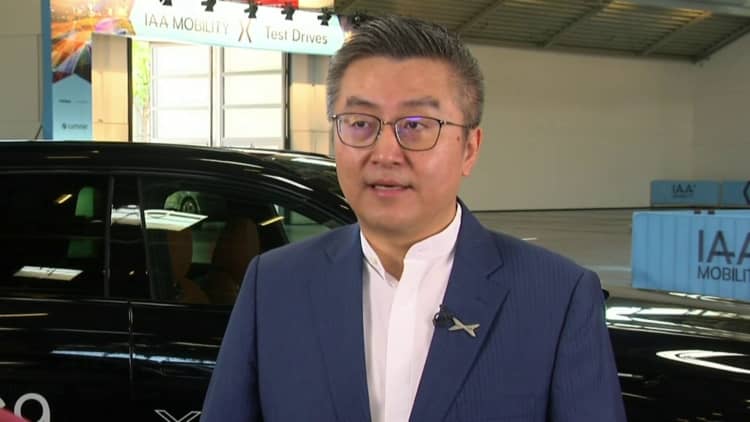
In the U.S., President Joe Biden’s landmark Inflation Reduction Act allocated $370 bilion to climate and clean energy investments, significantly expanding tax credits and other incentives for clean vehicle manufacturing, along with supporting the domestic BEV supply chain.
Various subsidies and incentives are now available for European companies, but Zellmer said these were “no where near the U.S. or China” and policymakers were “not moving fast enough” to keep pace.
Skoda is part of the Volkswagen Group, which Zellmer noted has also created its own company producing battery cells, PowerCo, and plans to build a huge gigafactory in Canada to complement existing facilities in Spain and Germany.
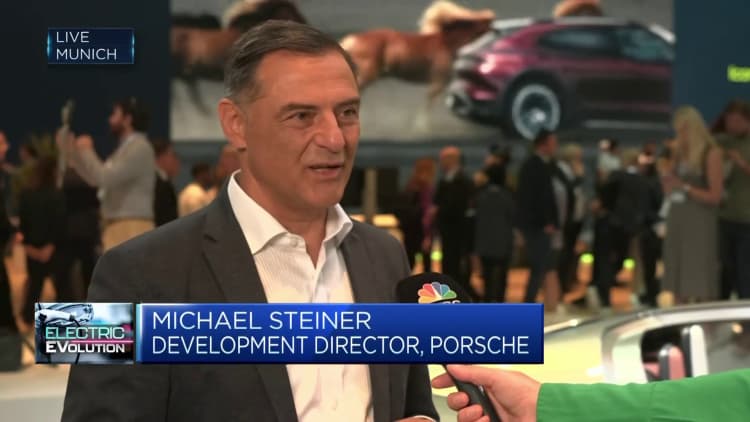
“I think in terms of supply, we’re in a good spot, but when it comes to expanding our footprint with gigafactories, Europe at the moment is not in a good spot,” Zellmer added.
While companies such as Renault and Volkswagen — which traditionally specialized in mass produced, affordable middle-of-the-range vehicles — seem wary of the Chinese threat, luxury automakers have sounded more confident in their ability to sustain a value proposition.
Michael Steiner, head of R&D at Porsche, told CNBC that the German luxury manufacturer, which IPO’d last year, was focusing on high quality components to separate itself from Chinese rivals.
“China is the most important competition and is growing very fast in battery and cell technology. For Porsche, we are looking for, let me say, better cells with a higher energy density,” Steiner said.
“We have our own daughter company — it’s called Cellforce Group — where we develop and produce, or will produce, cells that are for performance cars [and are] even better than the mass cells and batteries you can buy.”

